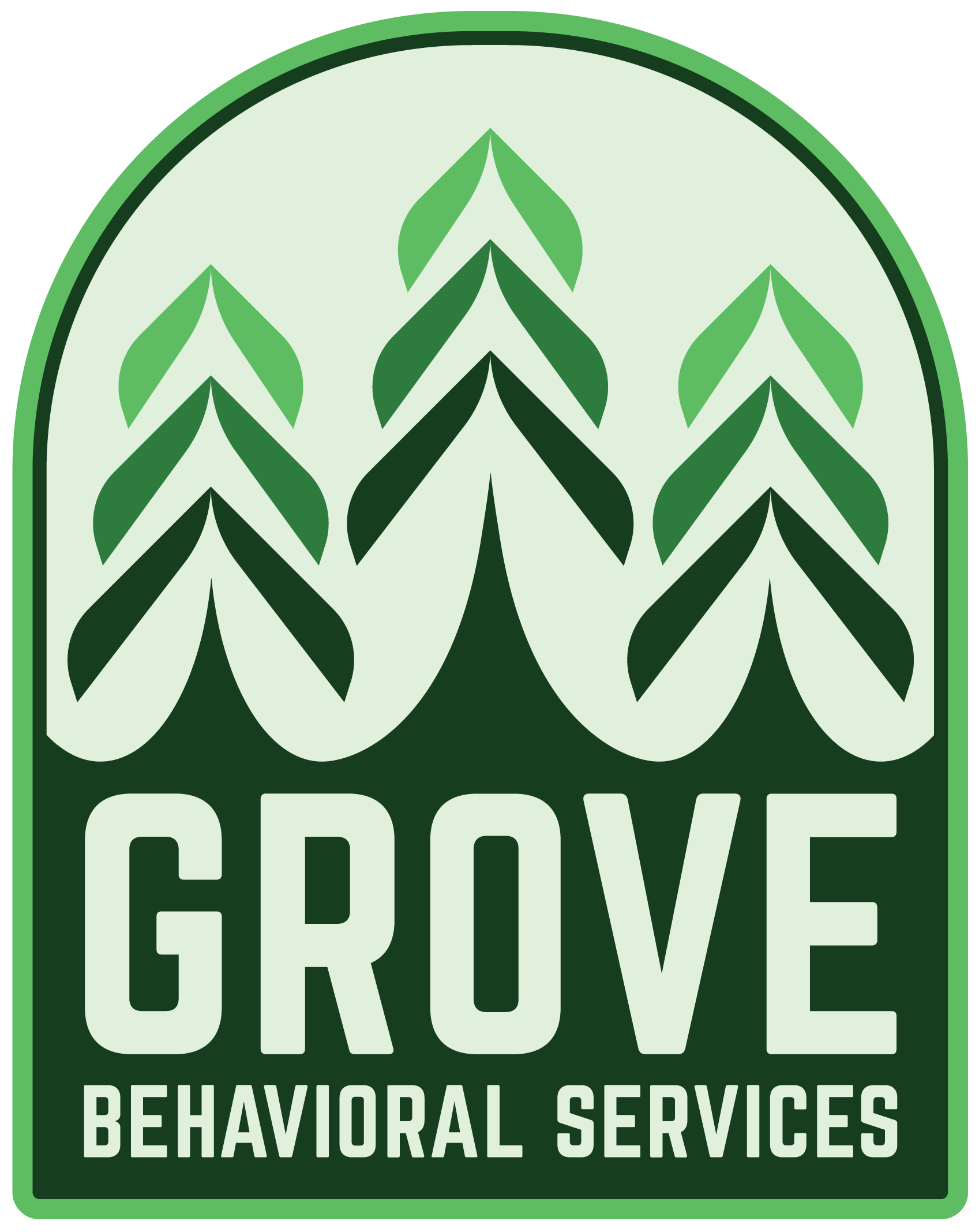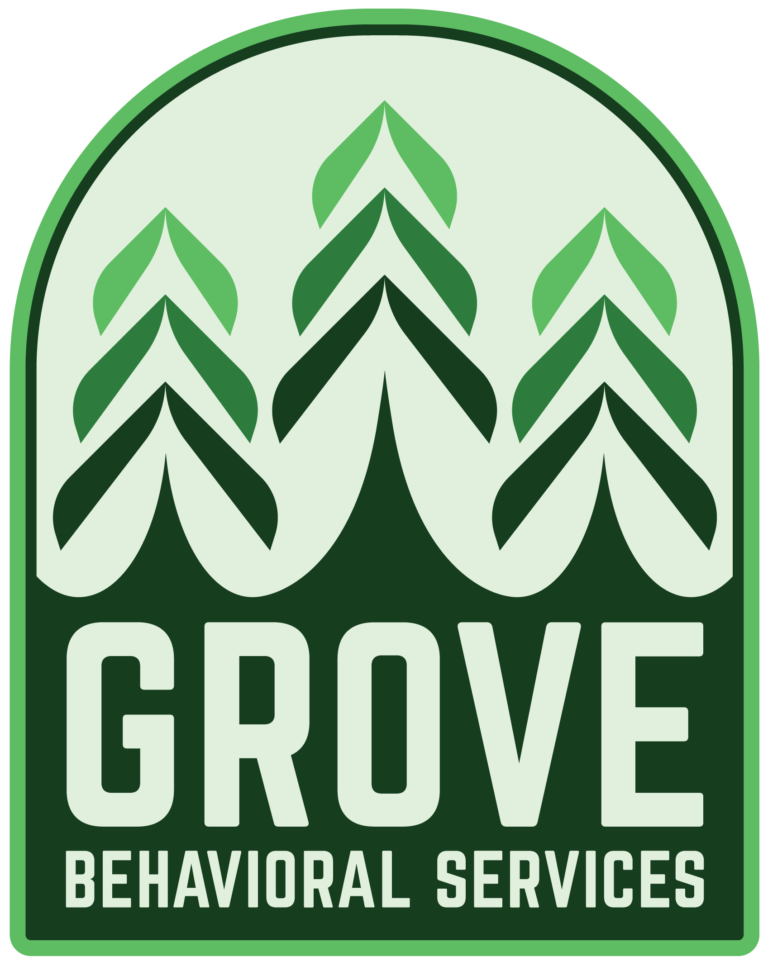FAQ
Grove Behavioral Services views all human interactions through the lens of assuming that a person has experienced trauma in their past. This framework has taught us that many common social assumptions about behavior are harmful, and it encourages us to show our softer sides and our empathy rather than the rigid ABA approaches of the past. Life isn’t black and white, it’s full of beautiful colors! We know the therapy we provide should be just as multi-faceted.
The word assent differs just slightly from consent, but the two are actually quite different. Consent typically looks like permission, directly given by an individual, for something to happen. Neurotypical individuals, especially adults, routinely have opportunities to give consent for themselves.
Assent typically looks like a willingness to participate. Since many of the children we work with are unable to verbally or legally provide consent, we look for signs of assent. For example:
Julia’s RBT brings playdoh to the table. Julia is nonverbal and has a sensory aversion to the feeling of clay on her fingers, so she immediately shrinks back in her chair to move away from the clay.
In this example, Julia’s behavior is likely not providing assent and we may re-evaluate our activity or approach.
Julia’s RBT brings out bubbles and begins to blow them. Julia is nonverbal and watching bubbles pop makes her feel joyful! When she sees her RBT with the bubbles, Julia moves closer, smiles, and points to the bubbles as they float.
In this example, Julia’s behavior is likely providing assent and we may continue the activity as part of our therapy.
Looking for assent is just one of the many important ways we strive to give our clients the dignity they deserve each and every day.
Every child receives a comprehensive assessment before services begin to determine the most appropriate number of therapy hours. For early intervention or for children with intensive needs, up to 30 hours/week may be recommended. Fewer hours may be recommended for less intensive needs. Your family and your treatment team will work together to find the schedule and balance of care that is best for your child.
- WI Medicaid
- CLTS
- Blue Cross Blue Shield — Carelon
- UnitedHealthCare
- Prairie States
- Cigna
Don’t see your insurance listed? Contact us to check!
Don't see your question?
Contact Us
Have questions not included here or looking for more information? Use this form to send us a message or give us a call at (920) 381-4133.



